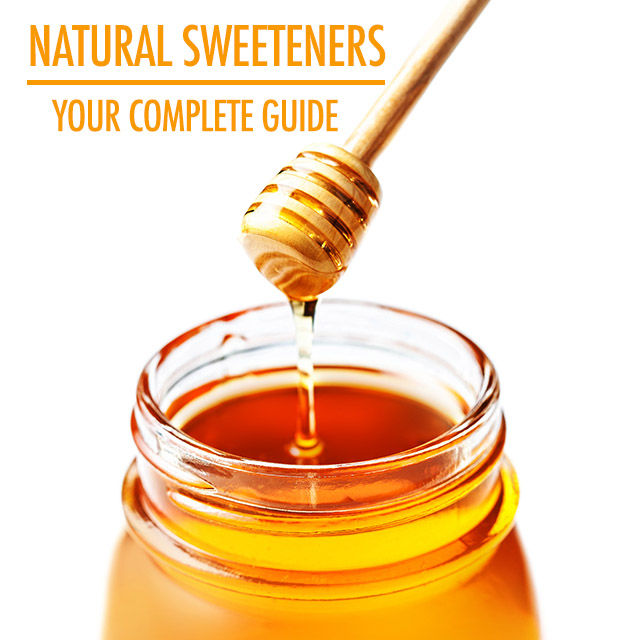[The Vegan’s Guide To Natural Sweeteners]

Executive Summary

This comprehensive guide explores the world of natural sweeteners for vegans, offering insights into their health benefits, potential downsides, and practical applications. We delve into the unique characteristics of each sweetener, including taste profiles, glycemic index, and nutritional value. From maple syrup to agave nectar, you’ll find a wealth of information to inform your choices and enhance your vegan lifestyle.

Introduction
As vegans, we’re constantly seeking plant-based alternatives to traditional ingredients. Sweeteners are no exception! While refined sugar might be tempting, it’s often laden with empty calories and can contribute to health issues. Fortunately, nature offers an abundance of delicious and nutritious sweeteners that can satisfy your sweet cravings without compromising your values.
Frequently Asked Questions
What are natural sweeteners?
Natural sweeteners are derived from plants or fruits, offering a healthier alternative to refined sugar. They typically contain vitamins, minerals, and antioxidants, making them a more nourishing choice.
Are natural sweeteners always healthier than sugar?
While generally considered healthier, some natural sweeteners can be high in calories or have a significant impact on blood sugar levels. It’s important to consume them in moderation and choose options that align with your dietary needs.
Which natural sweetener is best for baking?
The best choice depends on your recipe and desired outcome. Some sweeteners, like maple syrup, have a distinct flavor that might not be suitable for all baked goods. Agave nectar, on the other hand, has a neutral flavor and a high fructose content, making it ideal for baking.
Maple Syrup
Maple syrup is a beloved natural sweetener derived from the sap of maple trees. Its rich, buttery flavor and warm amber hue lend a distinct character to desserts, sauces, and beverages.
- Taste: Rich, buttery, and slightly caramel-like
- Glycemic Index: Moderate (GI of 54)
- Nutritional Value: Contains trace amounts of vitamins and minerals, including manganese and zinc.
- Uses: Ideal for pancakes, waffles, yogurt, and as a glaze for meats and vegetables.
- Considerations: High in calories and can be expensive.
Agave Nectar
Agave nectar is a thick, honey-like sweetener produced from the agave plant. It’s known for its smooth, slightly sweet taste and high fructose content.
- Taste: Mildly sweet with a slightly floral note.
- Glycemic Index: Low (GI of 19)
- Nutritional Value: Contains a small amount of vitamins, minerals, and antioxidants.
- Uses: Great for baking, smoothies, and marinades.
- Considerations: Can be high in fructose, which can be problematic for some individuals.
Stevia
Stevia is a natural, zero-calorie sweetener derived from the stevia plant. It’s significantly sweeter than sugar, making it a popular choice for those watching their sugar intake.
- Taste: Intensely sweet with a slightly bitter aftertaste.
- Glycemic Index: Zero (GI of 0)
- Nutritional Value: Virtually calorie-free and contains no carbohydrates.
- Uses: Ideal for sweetening coffee, tea, and desserts, as well as for baking.
- Considerations: Can have a lingering bitter aftertaste and some individuals may experience digestive issues.
Dates
Dates are a naturally sweet, dried fruit packed with nutrients. Their rich, caramel-like flavor makes them a versatile sweetener and a delicious snack.
- Taste: Sweet and rich, with caramel and toffee notes.
- Glycemic Index: Moderate (GI of 42)
- Nutritional Value: Excellent source of fiber, potassium, and iron.
- Uses: Can be added to smoothies, yogurt, oatmeal, and baked goods.
- Considerations: High in calories and can be sticky.
Coconut Sugar
Coconut sugar is a granulated sweetener produced from the sap of coconut palm trees. It has a distinct caramel-like flavor and a low glycemic index.
- Taste: Mildly sweet with a hint of caramel.
- Glycemic Index: Low (GI of 35)
- Nutritional Value: Contains trace amounts of vitamins and minerals, including iron and zinc.
- Uses: Suitable for baking, smoothies, and as a topping for desserts.
- Considerations: Slightly more expensive than other sweeteners and can be difficult to find.
Conclusion
Choosing the right natural sweetener is a personal journey that requires careful consideration. Each option has its own unique characteristics, including taste, nutritional value, and glycemic index. By understanding these factors, you can make informed choices that align with your dietary needs and preferences. Whether you’re seeking a zero-calorie option, a rich and flavorful sweetener, or a natural boost of energy, there’s a perfect natural sweetener out there for you. Remember, moderation is key, and always consult with a healthcare professional if you have any concerns.
Keyword Tags
- Natural Sweeteners
- Vegan Sweeteners
- Plant-Based Sweeteners
- Sugar Alternatives
- Healthy Sweeteners